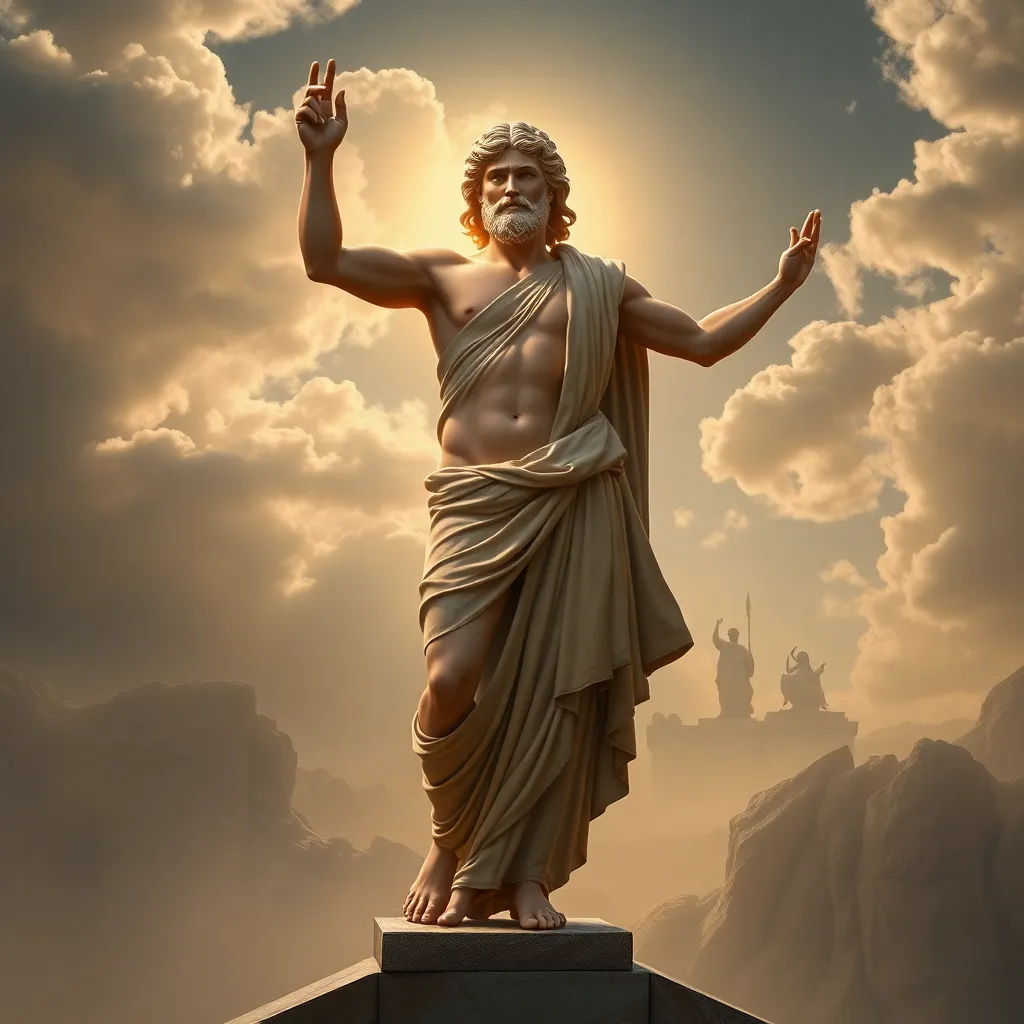The Duality of Apollo: God of Reason and Emotion
I. Introduction
Apollo, one of the most venerated deities in Greek mythology, embodies a complex interplay of dualities, most notably reason and emotion. As the god of light, truth, prophecy, and the arts, he serves as a multifaceted figure whose influence permeates various aspects of ancient Greek culture. This article delves into the duality present in Apollo’s character, illustrating how both reason and emotion coexist within him and what that signifies for humanity.
II. Historical Context of Apollo in Greek Mythology
Apollo’s origins are deeply rooted in myth. He is the son of Zeus and Leto and the twin brother of Artemis. Born on the island of Delos, Apollo’s birth was marked by a series of divine prophecies and significant events that set the stage for his future as a prominent Olympian god.
Among the Olympian gods, Apollo holds a unique position, acting as a bridge between the divine and the mortal realms. He is often associated with knowledge, healing, and the pursuit of truth. Key myths associated with Apollo include:
- The slaying of the serpent Python, which established his oracular status.
- The tragic tale of his love for the nymph Daphne.
- The story of Hyacinthus, a beautiful youth whose death led to the creation of the hyacinth flower.
III. Apollo as the God of Reason
Apollo’s association with reason is evident in his symbolism and the domains he governs. As the god of rationality and intellect, Apollo represents the ideals of logic, science, and philosophy.
One of the most significant manifestations of Apollo’s rational attributes is the Oracle of Delphi. This sacred site was considered the center of the world and the most important oracle in ancient Greece. Here, the Pythia, a priestess, would deliver prophecies inspired by Apollo, guiding individuals and city-states in their most critical decisions.
Through the Oracle, Apollo became a symbol of wisdom and foresight, emphasizing the importance of reason in human affairs. His teachings encouraged the pursuit of knowledge and understanding, influencing philosophers and scholars throughout history.
IV. Apollo as the God of Emotion
In stark contrast to his rational side, Apollo is also the god of emotion, particularly within the realm of the arts. His connection to music, poetry, and dance highlights the emotional depth of his character. Apollo is often depicted with a lyre, a symbol of his mastery over music and its ability to evoke profound feelings.
Apollo’s relationships further illustrate his emotional dimension. The story of Daphne, who transformed into a laurel tree to escape his advances, reflects themes of unrequited love and desire. Similarly, his bond with Hyacinthus, who died tragically in an accident, shows the depth of Apollo’s grief and the fleeting nature of beauty and life.
These narratives highlight Apollo’s role as a source of inspiration, evoking passion and creativity, which are essential aspects of the human experience.
V. The Interplay Between Reason and Emotion in Apollo’s Character
Apollo’s dual nature is evident in numerous myths that showcase both his rational and emotional sides. One prominent example is the myth of Marsyas, a satyr who challenged Apollo to a music contest. While Marsyas played the aulos (a double-reeded instrument), Apollo played the lyre. Despite Marsyas’s emotional performance, Apollo’s rational approach to music led him to victory, resulting in dire consequences for the satyr.
This myth illustrates the delicate balance between rational thought and emotional expression. Apollo’s duality serves as a reminder that both elements are vital for creativity, wisdom, and understanding in human life. The interplay between reason and emotion can lead to a more profound appreciation of our experiences and decisions.
VI. Cultural Interpretations of Apollo’s Duality
The impact of Apollo’s duality on ancient Greek culture cannot be overstated. His character influenced various forms of art, literature, and philosophy, becoming a symbol of the pursuit of harmony between intellect and emotion.
In art, Apollo is frequently represented in sculptures and paintings that capture both his rational and emotional aspects. In literature, poets and playwrights explored his character, often highlighting his complexities. Philosophers, too, referenced Apollo as a guiding principle in their discussions about the nature of knowledge and the arts.
In modern interpretations, Apollo’s duality continues to resonate. His character serves as a lens through which we can examine contemporary issues related to the balance of reason and emotion in our lives.
VII. Lessons from Apollo’s Duality
Apollo’s duality offers valuable lessons for modern life. The importance of balancing reason and emotion cannot be overstated, as both elements shape our decisions and interactions. Recognizing the value of rational thought while embracing emotional expression can lead to a more fulfilling existence.
Insights into human nature derived from Apollo’s character encourage us to explore our own complexities. Understanding that we all possess elements of both rationality and emotion fosters empathy and personal growth.
Moreover, Apollo’s legacy reminds us of the dualities present in our own lives—between intellect and creativity, logic and passion. Embracing these dualities can enhance our relationships, artistic expressions, and overall understanding of the world.
VIII. Conclusion
In summary, Apollo’s character encapsulates a profound duality that reflects the complexities of human existence. His roles as the god of reason and emotion highlight the importance of both rational thought and emotional depth in our lives. As we explore Apollo’s enduring legacy, we gain insights into the fundamental nature of the human experience.
We invite you to continue exploring the rich tapestry of mythological figures like Apollo, as their complexities offer timeless lessons and reflections on our own journeys.




